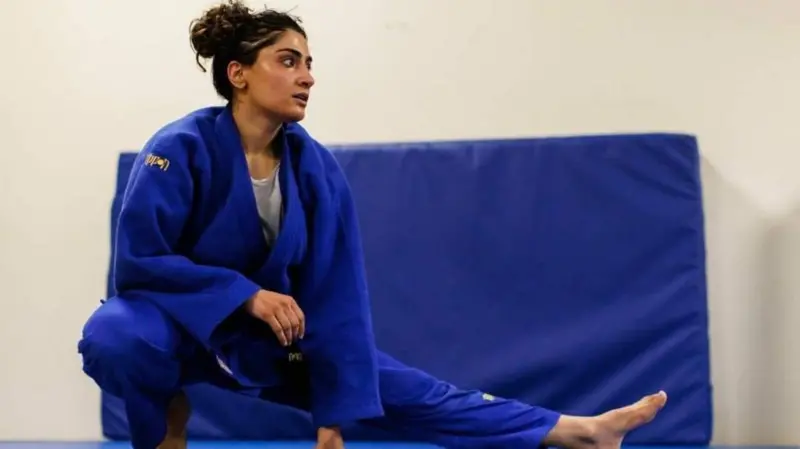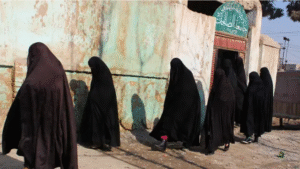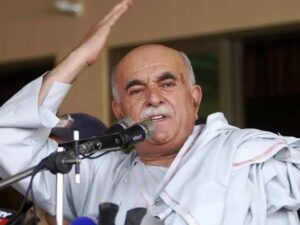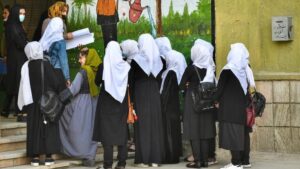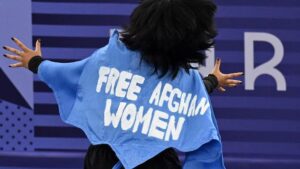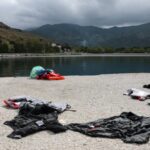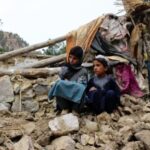The story begins with a 30-minute karate class on the balcony of her home in Peshawar, Pakistan. At that time, Nagara Shahin was an 11-year-old Olympic refugee, having spent most of her short life in exile and migration.
Nagara fled Afghanistan with her parents in 1993 when she was just a baby. Her mother carried her for two days and nights while crossing mountains and passes.
To pursue her beloved sport, Nagara faced numerous obstacles, from her first and last karate class to competing in judo at the Olympics as a member of the Olympic Refugee Team.
Since 2022, this 31-year-old athlete has been living and training in Toronto, Canada.
Nagara Shahin completed her education in Pakistan, where she endured harassment from men and bullying from her peers on her way to school.
In an article published in *Life Toronto*, she recalls: “One day, an older man harassed my sister and me. He shouted at me and pushed me to the ground. I wanted to hit him with my fist, but I didn’t know how to do it.”
Her mother told her she needed to learn to defend herself. The school she attended did not offer martial arts training, either in the regular curriculum or extracurricular activities.
Through distant relatives, Nagara learned about a karate instructor nearby. Although the male instructor couldn’t teach at the school, he could come to her home.
Soon enough, Nagara began practicing on her aunt’s balcony. She says, “My mother said this space could be provided by family, and you should use it as much as you can.”
Before long, Nagara Shahin participated in local karate competitions. Her coach recognized her enthusiasm and skill and encouraged her to compete in judo.
“My first coach told me, ‘You won’t learn to get up until you fall.’ This advice motivated me greatly during my childhood.”
She also fondly remembers watching professional wrestling matches in America with her father, who was a wrestling enthusiast.
Judo gave Nagara Shahin the confidence to find herself and enjoy life despite all the suffering and hardships of displacement and seeking asylum.
According to a BBC news report, her coaches gradually began to recognize her skills. She reached a point where she trained with the national judo team of Pakistan but was unable to compete with them due to not having a Pakistani passport.
In 2014, Nagara Shahin returned to Afghanistan and studied political science and public administration at the American University of Kabul. She also trained with the Afghan national team, and her male teammates welcomed her presence.
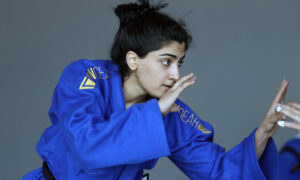
As noted in *Life Toronto*, “During training, we were like a family, and they treated me like their sister.”
She continued to train and compete, gaining significant attention as a female athlete in Afghanistan, which was somewhat unintentional. She told the BBC, “I faced immense cyber violence. This violence later turned into real harassment.”
She recounted, “Several times, cars followed us. Once, a soda can was thrown at my mother, and I skillfully managed to save her.”
In her first competition at the Tokyo Olympics, Nagara suffered a shoulder injury. In 2018, she left her homeland. She said, “I always say I became a refugee for the second time.”
She went to Russia to continue her studies in entrepreneurship and international business. Unlike the warm welcome she received during training in Afghanistan, she couldn’t find a suitable group to train with in Russia. She spent a year training alone, which she describes as the bitterest period of her athletic career.
In 2019, she met with a member of the International Judo Federation who suggested she join the Olympic Refugee Team. She qualified to participate in the 2020 Tokyo Olympics but was eliminated in her first match due to her shoulder injury.
Until she completed her studies in Russia, the situation in Afghanistan had deteriorated significantly. Nagara said, “I was trapped.”
She returned to Pakistan but often stayed at home out of fear for her life. She faced severe attacks and criticism for not adhering to hijab regulations during competitions, which made her think more about her next steps.
During this time, with the help of the Olympic Refuge Foundation and the UN Refugee Agency, she was given the opportunity to live and study in Canada. Nagara Shahin was accepted to continue her education in International Development in Toronto.
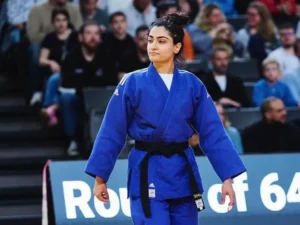
She arrived in Canada in September 2022—a bittersweet moment for an athlete who has sought stability and peace across three different countries.
It was in this Canadian city that her athletic life in judo was revitalized. In Paris, she is one of 37 athletes on the refugee team—a team that Nagara Shahin is proud to be a part of.
Today (Saturday, August 20), she is set to step onto the mat once again and will compete for the first time in a mixed event representing the refugee team. Before the competitions, she told the International Judo Federation, “Team competitions are more exciting because I always look at my teammates, and I can’t let them lose; that’s why I fight for all of them.”
After the games, Nagara Shahin plans to declare Canada her home. She has now received permanent residency in Canada and hopes to one day be a supporter and helper for refugees like herself.
Her mother and father are still in Pakistan and are happy that she has been able to realize her dream of participating in the Olympics. She says she relied on her family’s support during the toughest times.
“My sister always told me, ‘I believe you will eventually reach your goal, and all these hard days will become memories that you can laugh about.'”
“And now is the time when I can laugh about everything I’ve been through.”

